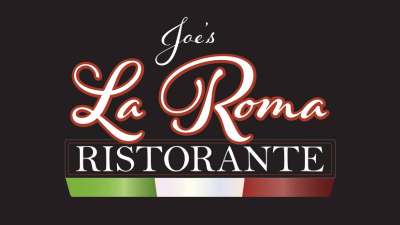Editor’s note: The views and opinions expressed in this review are solely those of Marlon Wallace and do not necessarily reflect the views and opinions of WBOC.
Nicolas Cage is a veteran actor, arguably a legendary one. He is currently 58-years-old. This year marks his 40th anniversary as a working actor, having his first credit be for Fast Times at Ridgemont High, which was originally released in August 1982. Cage is the nephew of iconic filmmaker Francis Ford Coppola, but he made a name for himself, mostly independent of the Coppola connection. Cage has been steadily doing films since the early 1980’s, often doing multiple films in one year. His output has increased over the past decade, averaging three films or more per year. In both 2018 and 2019, he appeared in seven films per year. At this point, he’s done about 100 titles total. I’ve been aware of Cage since my parents introduced him through his film Peggy Sue Got Married (1986).
However, I didn’t really take note of Cage until I saw him in Face/Off (1997). I enjoyed that film and Cage in it, but, out of the nearly 100 titles that Cage has done, I’ve only seen about 10 of them. Needless to say, I’m not a huge fan of Cage. With the exception of Face/Off, I haven’t seen any of Cage’s biggest films like The Rock (1996), Con Air (1997), Gone in 60 Seconds (2000), National Treasure (2004) or Ghost Rider (2007). A lot of the work referenced in this feature, directed and co-written by Tom Gormican in only his second time at a major motion picture, have been ones I haven’t seen either. Those titles referenced that I haven’t sat through include Moonstruck (1987), Wild at Heart (1990), Guarding Tess (1994), Leaving Las Vegas (1995), Captain Corelli’s Mandolin (2001), The Wicker Man (2006) and Mandy (2018).

The titles referenced that I have seen include Joe (2013), The Croods (2013) and Adaptation (2002). When it comes to the references, a lot of them are simply name-checks. Literally, a character will cite the title of a Cage film. Such is the case with Con Air and The Croods. Some of the references are oblique, such as the reference to Joe. That 2013 independent film isn’t name-checked. Instead, the director of that 2013 indie, David Gordon Green, makes a cameo here. Some references are re-creations of moments from previous Cage films or riffs on similar ideas or themes, such as the reference to Adaptation.
As a matter of fact, of all the Cage films referenced, Adaptation is the one that seems to be the film that inspired Gormican the most. There have been other films where Cage has played a character working in Hollywood but Adaptation is probably the only one in his filmography where he plays someone actively working to make a Hollywood production. Specifically, in Adaptation, Cage is playing a guy who is trying to write a script. Here, Cage is playing an actor trying to be cast in a production, but later he works with someone to write a script or at least come up with an idea for a script.

The Unbearable Weight Of Massive Talent Nicolas Cage and Pedro Pascal Photo Credit: Karen Ballard/Lionsgate
In Adaptation and in this film, the script or script idea becomes one that is meta or self-reflexive. In Adaptation, there is also this conceit where Cage has to play two characters in the same scene. In fact, Cage plays twins. Cage does a similar thing in this film. He plays two characters who talk to each other in the same scene. Here, it isn’t twins, but again it’s two characters who look alike and who argue over what path to take in terms of their Hollywood careers. One wants to go the dumb blockbuster route and the other wants to go the more prestige and dignified route.
In addition to Adaptation, another film from which I think Gormican drew inspiration is Lost in Translation (2003). Now, Lost in Translation isn’t a Nicolas Cage film, but, it was a film that was written and directed by Cage’s younger cousin, Sofia Coppola. Lost in Translation was about an actor of a certain age, played by Bill Murray, whose career isn’t where he wants and is in a foreign country in order to do a job that will make him money and not fulfillment. Here, Cage is also playing an actor, a fictionalized version of himself, who is of a certain age, whose career isn’t where he wants and who has to go to a foreign country to do a job simply for the money.

Pedro Pascal as Javi and Nicholas Cage as “fictionalized version of himself” in The Unbearable Weight of Massive Talent. Katalin Vermes/Lionsgate
Lost in Translation focuses on Murray’s character and his romance with a woman. Here, the focus is on Cage’s character and his bromance with a guy named Javi Gutierrez, played by Pedro Pascal (Wonder Woman 1984 and Narcos). That relationship is a main thrust, but it’s revealed that the bromance is just a bridge to Cage’s character and his relationship with his daughter, Addy, played by Lily Mo Sheen. Addy is somewhat estranged from her father because of his devotion to his job and more due to his snobbish tastes, which she feels he’s pushing on her without understanding her personal preferences.
Going back to Adaptation, that 2003 Oscar-winning film ends with a thrilling moment where Cage’s character is being chased by someone trying to kill him. Here, Cage’s character travels to Majorca and runs afoul of a Spanish-speaking cartel or mob group. So, like Adaptation, this film ends with Cage’s character running for his life. Instead of a thriller, this film becomes more of an action flick, a comedic action flick that is funny and ups the entertainment factor here. It also gives a platform to Spanish-speaking actors to shine for American audiences, actors like Paco León (The House of Flowers and 7 Years) who plays Lucas Gutierrez, the cousin to Javi.

Rated R for language, some sexual references, drug use and violence.
Running Time: 1 hr. and 47 mins.
In theaters.






























